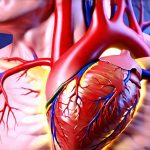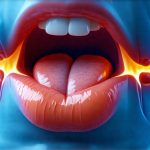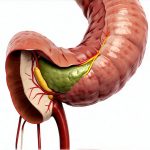Gastroesophageal reflux disease (GERD) is a surprisingly common condition, affecting millions worldwide. Most people associate it with heartburn – that burning sensation in the chest after a large meal – but GERD manifests in many ways, often beyond just typical acid reflux symptoms. One less-discussed, yet incredibly frustrating symptom for those experiencing it, is excessive mucus production. While mucus itself isn’t inherently harmful—it’s actually protective—an overabundance can be unsettling and indicative of underlying issues related to digestive health. Understanding the connection between GERD and increased mucus helps demystify this experience and allows individuals to better understand their symptoms and seek appropriate support.
The digestive system naturally produces mucus as a vital component of its defense mechanisms. It lines the esophagus, stomach, and intestines, providing a barrier against harsh stomach acids and enzymes. In a healthy digestive system, mucus production is balanced; it’s there when needed but doesn’t become overwhelming. However, in GERD, this delicate balance can be disrupted. Chronic acid reflux irritates the esophageal lining, triggering an inflammatory response. This inflammation often leads to increased mucus production as the body attempts to neutralize the acid and protect itself from further damage. It’s important to remember that the mucus isn’t causing the problem; it’s a consequence of the underlying GERD and the irritation associated with it.
The Role of Inflammation in Mucus Overproduction
Inflammation is truly at the heart of this connection. When stomach acid frequently backs up into the esophagus (reflux), it causes micro-injuries to the delicate esophageal lining. This isn’t a one-time event for those with GERD; it’s a chronic, recurring process. The body responds to these injuries by initiating an inflammatory response—a natural healing mechanism. However, this persistent inflammation leads to chronic mucus overproduction as part of the healing process and to continually coat and protect the irritated tissues. It’s akin to your body constantly trying to build a stronger shield against ongoing attack.
Beyond the esophagus itself, inflammation can extend further up into the throat and even into the sinuses. This is why some individuals with GERD experience not just excessive mucus in the back of their throat (postnasal drip) but also symptoms resembling allergies or chronic sinusitis. The inflammatory response isn’t confined to the digestive tract; it’s a systemic reaction that can manifest in various ways throughout the body. This explains why some people describe feeling like they constantly need to clear their throat, experiencing a persistent cough, or even having difficulty breathing due to mucus buildup.
Furthermore, the type of inflammation matters. In GERD, it’s often linked to eosinophilic esophagitis (EoE) in some patients – an allergic inflammatory condition where eosinophils (a type of white blood cell) accumulate in the esophagus. While not all GERD sufferers develop EoE, it’s a potential complication that can significantly increase mucus production and esophageal inflammation. Identifying the specific type of inflammation is crucial for targeted treatment strategies. You might want to learn more about gerd with esophagitis and how it impacts inflammation.
Lifestyle Factors Contributing to Increased Mucus with GERD
While GERD itself is often the primary driver of increased mucus, lifestyle factors play a significant role in exacerbating symptoms and increasing production. Dietary choices are paramount. – Spicy foods – Fatty foods – Acidic foods (citrus fruits, tomatoes) – Caffeine – Alcohol These can all trigger more acid reflux, leading to greater esophageal irritation and subsequent mucus overproduction. It’s not necessarily about eliminating these foods entirely, but rather identifying personal triggers and moderating consumption. Understanding why some foods cause bloating can help you make informed choices.
Another key lifestyle factor is body weight. Obesity increases intra-abdominal pressure, which pushes stomach contents upwards into the esophagus, increasing the likelihood of reflux. Similarly, smoking weakens the lower esophageal sphincter (LES) – the muscle that prevents acid from flowing back up – making it easier for acid to escape and cause irritation. Stress also plays a role; chronic stress can disrupt digestive processes and worsen GERD symptoms, including mucus production.
Finally, eating habits themselves matter. Eating large meals, lying down immediately after eating, and failing to elevate the head of your bed during sleep can all contribute to reflux. These seemingly small changes in daily routine can have a significant impact on managing GERD and minimizing excessive mucus production. Taking control of these modifiable lifestyle factors is often the first step towards relief. It may be helpful to understand why some days you eat everything without issue, while others are filled with discomfort.
Understanding Postnasal Drip & GERD
Postnasal drip – the sensation of mucus running down the back of your throat – is a common symptom associated with GERD, but it’s important to differentiate between allergy-related postnasal drip and GERD-induced postnasal drip. Allergy-related drip is usually clear and watery, while GERD-related drip tends to be thicker and may have a slightly sour or bitter taste due to the refluxed acid. This distinction can be tricky to identify on your own, emphasizing the importance of professional diagnosis.
The connection arises because stomach acid irritating the esophagus can stimulate mucus production not just in the esophagus but also in the sinuses and nasal passages. The vagus nerve, which plays a role in both digestion and respiratory function, is often implicated in this cross-talk between the digestive system and the upper airways. As GERD causes irritation, it triggers signals along the vagus nerve, prompting increased mucus production throughout the respiratory tract. This can lead to chronic coughs, sore throats, and a feeling of fullness or congestion in the sinuses.
Treating postnasal drip solely as an allergy issue won’t address the underlying cause – GERD – and may only provide temporary relief. A comprehensive approach that targets both the reflux and the resulting mucus production is essential for effective management. This might include medications to reduce acid production, lifestyle modifications to minimize reflux, and potentially addressing any co-existing allergies or sinus issues. It’s important to note gerd without esophagitis can still cause significant discomfort and require treatment.
The Role of Medications & Mucus Production
Certain medications can either contribute to or help manage increased mucus production in GERD sufferers. Proton pump inhibitors (PPIs) and H2 receptor antagonists are commonly prescribed to reduce stomach acid production, thereby lessening the irritation that leads to mucus overproduction. However, long-term PPI use has been linked to changes in gut microbiome which could potentially affect mucus production in some individuals – though this is an area of ongoing research.
Conversely, some medications can worsen GERD and increase mucus production. Nonsteroidal anti-inflammatory drugs (NSAIDs) like ibuprofen and naproxen can irritate the esophageal lining and weaken the LES. Certain blood pressure medications and antidepressants may also have similar effects. It’s crucial to discuss all medications – prescription, over-the-counter, and supplements – with your doctor to identify any potential contributors to GERD symptoms.
Finally, some individuals find relief from mucus production through specific therapies aimed at soothing the esophagus. Alginate-containing antacids create a protective barrier over the stomach contents, reducing reflux and minimizing irritation. Demulcents, like slippery elm or marshmallow root, can coat and soothe the irritated esophageal lining, providing temporary relief from discomfort and reducing mucus production. Always consult with your healthcare provider before starting any new medication or supplement. A stool test for occult blood can help rule out other digestive issues.
When to Seek Medical Attention
While increased mucus production is often a manageable symptom of GERD, there are times when seeking medical attention is crucial. – If mucus production is excessive and interferes with daily activities (breathing, swallowing). – If you experience other concerning symptoms alongside mucus, such as difficulty swallowing (dysphagia), chest pain, or unexplained weight loss. – If over-the-counter remedies and lifestyle modifications provide no relief. – If you suspect a potential complication like eosinophilic esophagitis.
A healthcare professional can properly diagnose the underlying cause of your symptoms and recommend an appropriate treatment plan. This may involve diagnostic tests such as endoscopy (to visualize the esophagus) or esophageal manometry (to assess LES function). Treatment options might include medications to reduce acid production, lifestyle modifications, dietary changes, or referral to a specialist like a gastroenterologist. Don’t self-diagnose or attempt to manage severe symptoms on your own. If you feel overwhelmed by these symptoms, remember why IBS and gas can flare up in times of stress. Early diagnosis and intervention are key to preventing complications and improving long-term health outcomes.


















